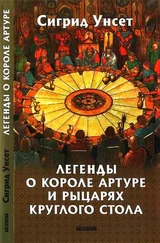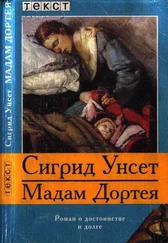Salvation City
by Sigrid Nunez

The best way to remember people after they’ve passed is to remember the good about them.
The first time Cole hears Pastor Wyatt say this he remembers how his mother hated when people said passed, or passed away. He’d come home from school one day and repeated the teacher’s announcement: Ruthie Lind was absent that day because her grandmother had passed.
“Died. Say died, pumpkin,” his mother said. “Passed sounds so silly.”
She had called him pumpkin and she did not seem to be angry with him, but he had felt obscurely ashamed. Later he was told that people were afraid to say died because they were afraid of dying. Passed was just a euphemism. The funny-sounding word was new to Cole and for a time it kept recurring, floating into his head for no apparent reason. But the first time he saw the word in a book he did not recognize it, he was so sure it began with a u . Followed by an f , of course.
Pastor Wyatt does not always say passed. More often he says went home. (“Had a great-aunt went home at a hundred and three.”) It all depends on whether the person he is talking about was saved or unsaved.
When he is preaching, Pastor Wyatt never says passed.
Pastor Wyatt is not afraid of dying.
“That’s my job in a nutshell. I’ve got to teach people not to be afraid. We’re all going to die, that’s for certain. And the thing for folks to do is stop wasting their energy being all headless and fearful like a herd of spooked cattle.”
At first, whenever Pastor Wyatt spoke directly to him, Cole would watch Pastor Wyatt’s hands. He was not yet comfortable looking Pastor Wyatt in the face. Cole was keeping so much in—he had so many secrets—he did not like to look anyone in the face if he could help it. He knew this gave the impression he’d done something wrong, and that is just how he felt: as if he’d done something wrong and was trying to hide it.
He still feels this way much of the time. He thinks he will always feel this way.
Pastor Wyatt himself has a way of looking at people that Cole would call staring. His mother would have called it fucking rude. But from what he can tell, other people are not at all disturbed by the way Pastor Wyatt looks—or stares—at them.
Cole understands that Pastor Wyatt is thought to be handsome, though Cole himself has no opinion about this. But he has observed that people are delighted to have Pastor Wyatt’s attention on them, especially if they are women.
Pastor Wyatt always looks right into the face of the person he is talking to, and his eyes are almost like hands that reach out and hold you so you can’t turn away. Somewhere Cole has read about a person giving someone else a searching look. He thinks this is a good description of what Pastor Wyatt does, too. But with Pastor Wyatt it’s not something that happens once, or once in a while, but more like every time, and in the beginning Cole hated it.
He has never known anyone who looks so hard at other people. (He’s got Holy Spirit high beams, members of the congregation like to say.) Cole has never known anyone who smiles so much, either. He smiles even when he preaches and when he is preaching about bad things, like temptation and sin. He smiles so that people won’t be afraid. He is a tall man with a wide neck and naturally padded shoulders, and around shorter people he tends to slouch, bending his knees if need be—he does not like the feeling of towering over anyone. (Cole always thinks of this when Pastor Wyatt tells him to stand up straight, or not to hunch at the table.) When he is among children, Pastor Wyatt will sometimes do a full knee bend, balancing on the balls of his feet. It would break his heart to know that any child was afraid of him.
Pastor Wyatt still shakes hands with people. He pays no attention to the warning to switch to the elbow bump. Cole remembers learning about this while he was still in regular school. Public health officials were trying to get people to switch because touching elbows did not spread infection the way touching hands did. Cole knows there are many people who have switched, but he sees the elbow bump only when he is around strangers. The people he sees every day make fun of the elbow bump. They shake hands and they hug one another, even though Pastor Wyatt says the disease that spared them all this time around is neither the last nor the worst of its kind. Other plagues are coming, he says, smiling. And he thinks they will be here soon.
Pastor Wyatt’s hands are of a whiteness and a softness that make Cole think of milk, of goose down, of freshly washed and bleached flannel sheets. It is impossible to imagine flu germs, or germs of any kind, lurking on such clean hands. Pastor Wyatt has never been sick a day in his life. If anyone else made such a claim, Cole would surely doubt it. But if Pastor Wyatt says it, he thinks it must be true.
Most marvelous are the fingernails, each tipped with a perfect little white crescent moon. He knows these nails are the work of Tracy, Pastor Wyatt’s wife. He has caught her giving Pastor Wyatt manicures. Not that they try to hide it. They do the manicures right at the kitchen table, usually while listening to the radio. There is a television in the house, but Pastor Wyatt disapproves of television—the idiot box, he calls it—and Cole isn’t allowed to watch much. But the radio is often on, playing Christian twang (Tracy’s thing; Cole and Pastor Wyatt prefer Christian rock), or tuned to some talk show or sermon. Pastor Wyatt himself is a regular guest on the local station, on a weekly program called Heaven’s A-Poppin’!
When he sees Tracy doing Pastor Wyatt’s nails, Cole is embarrassed, almost as if he’d caught them having sex. He has no idea if Pastor Wyatt and Tracy have sex; he chooses to think they do not. He is a hundred percent certain he will never catch them having sex. He will never see either of them naked. It simply must not be allowed to happen. If it happens, he will have to die.
He thinks of the time he saw his parents lying naked on top of their covers, in broad daylight—the shades were up, sun fell across the bed—and how it was one of the worst moments of his life. He would have given all his toys to undo it.
First his parents pretended it never happened. Then something—most likely his behavior—must have changed their minds, and they insisted on talking about it. Which Cole would not do. Worst of all was when they tried teasing him about it. He would have given all his toys a second time for them just to forget it. Secretly he had vowed that no one would ever see him naked.
About sex he knew then just enough to feel shame. Certain photos he’d seen—ripped from magazines and passed around at school—had left him with images of unhealthy-looking grayish-pink flesh, like meat that had turned, and hideous tufts of dark hair where hair shouldn’t even be, images that soured his stomach. It would have taken a miracle to connect them with the time he stumbled on Jade Korsky during a game of hide-and-seek. In the dark closet their teeth had clicked together like magnets, and they had tongued her cherry cough drop back and forth till it was the size of a lentil.
The moment he heard what intercourse was, instinct told him it was true. The knowledge had brought an anxious and bewildering sorrow, a feeling that would return when he learned what his mother’s box of tampons was for. He did not share the excitement about these matters other boys couldn’t hide. From what he could tell, his responses weren’t normal, and he would not dream of revealing them.
Читать дальше













